Am I Wrong for Snapping at My Mom for Assuming and Sharing My Sexuality?
A student angered his mother after he was just 20 began to guess he was gay and told friends that he did. It all started when his younger sister asked him to explain something about a “Greek god” from a book she was reading and his mother asked if he had feelings for his beefy best friend. He immediately denied it, but she said their behavior proved otherwise.
Things got heated when she mentioned that she told her friends he was gay but not out yet. This, of course, upset him, but also made things “odd,” given that one of her friends has a daughter he wants to go out with. While he admits that he thought her intentions may have come from a place of concern, she assumed things and shared them that he did not want her to, which he considered to be invasive and damaging. That is why he ended up confronting her.
Sometimes, very innocent interactions could potentially snowball into awkward misunderstandings

The author’s mother assumed he was gay due to his close friendship with his best friend, despite his insistence that he wasn’t
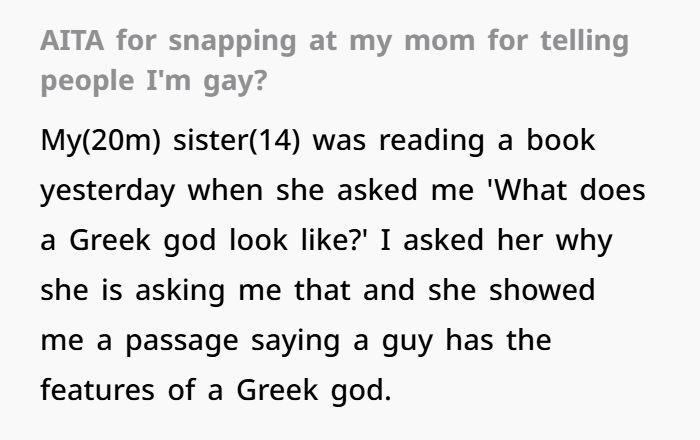
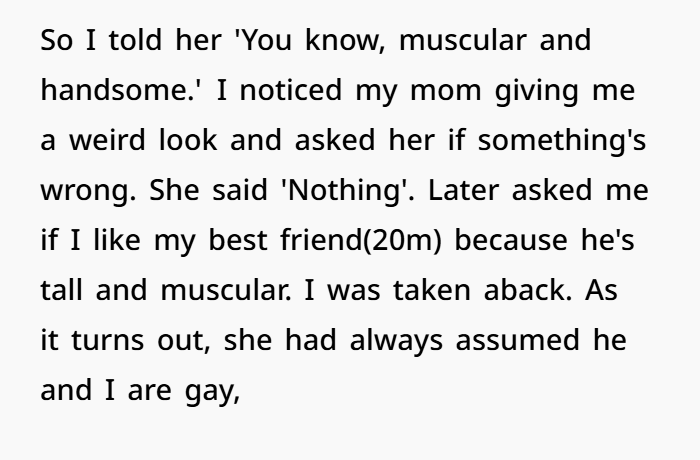
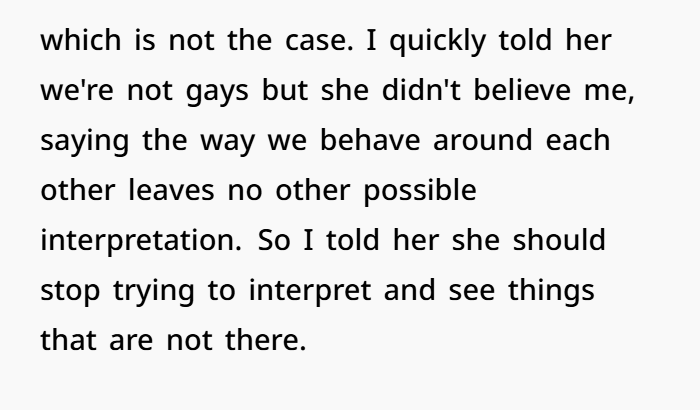

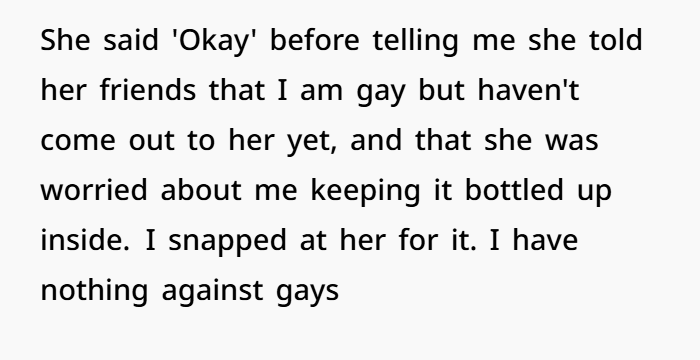
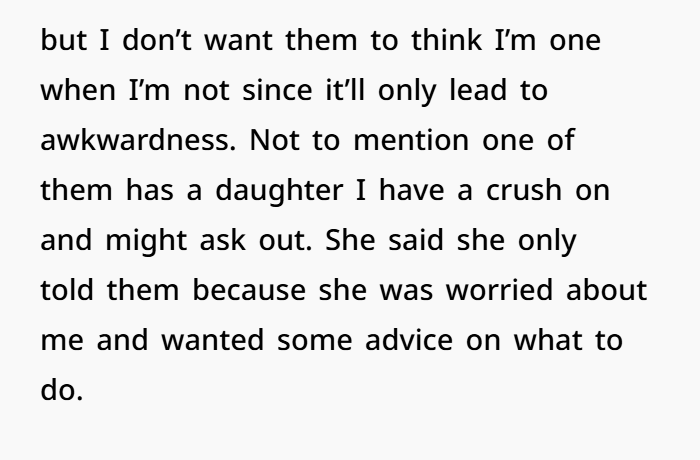
The Harm of Assumptions About Sexuality
This can easily lead to misunderstandings and breaches of trust — even if you are coming from a place of good faith. Research from the Journal of Interpersonal Communication shows that the act of labeling is as emotionally upsetting as one might expect given that people tend to take public assumptions about identity personally. His mother made an assumption which ended up causing an unnecessary fight between my son and herself, and the risk of awkward social encounters.
If mom’s concern was legitimate, then still, the miss was not respecting the boundaries. A paper published in Family Process linked parental overreach in identity matters to relationship strain, especially when these assumptions made by parents are groundless. The road is paved with open communication (without any judgment here).
The Importance of Privacy in Identity
Discussing the privacy of another person, especially about their sexuality. According to a study from Pew Research Center, most people believe their sexuality is a private matter—73% of people surveyed stated they believe it is important to be able to share if you are attracted to the same sex or not, on your terms.
In this case, the mother created problems for her son by telling everyone else about his problems before he could get to them. Since his relationship with his crush depends on his equivalently normal life, there is nuance that may not get added otherwise.
Navigating Sensitive Family Dynamics

Families are guided to provide trusting environments to prevent misinterpretation of such incidents. According to the American Psychological Association, parents should ask open-ended questions — not make statements. Rather than asserting, “You’re a homosexual!” when his mother hoped that his “friend” was “only a friend,” she could have reacted more neutrally: “You’re really close with your friend; how do you view the relationship?”
If the assumptions have already been communicated, it is imperative to offer an apology and try to repair any damage done. This can help restore trust and ensure that boundaries are honored in the future.
Netizens share mixed sentiments about the situation as some believe the mother was wrong while some believe the son was being overly defensive
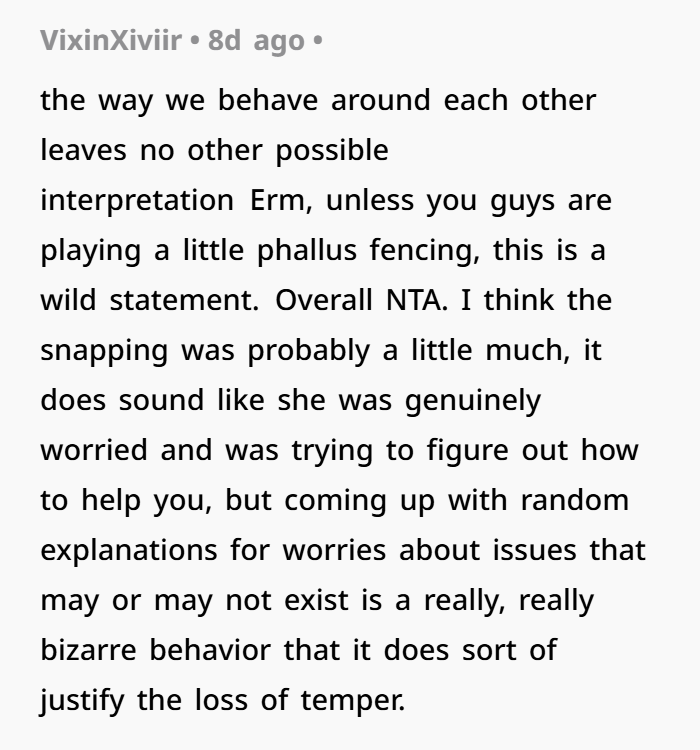
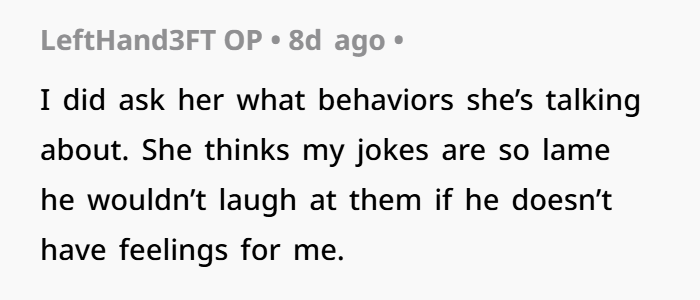
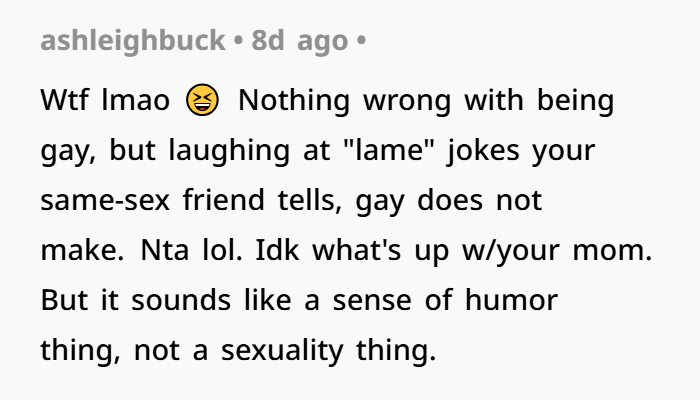

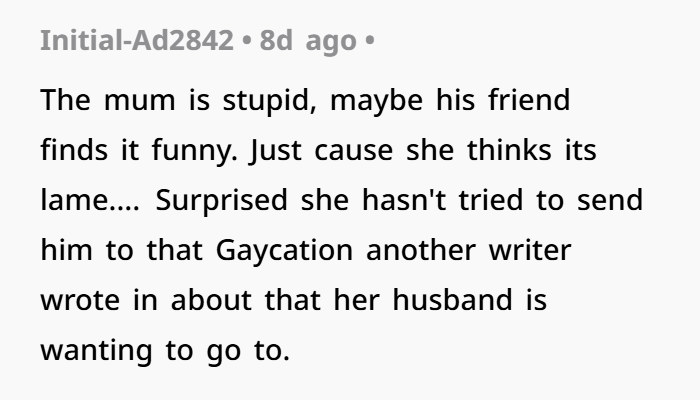

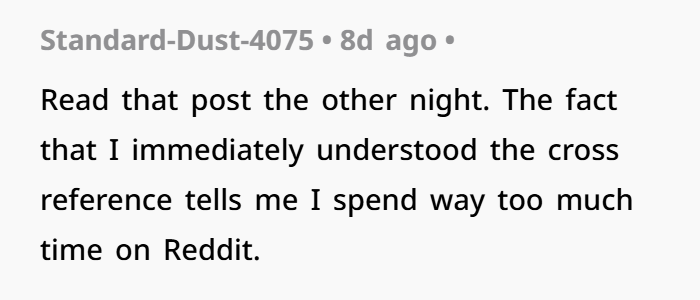
The mother overstepped by assuming what her son was doing and sharing this information, which only led to conflict that could have been avoided. Although misguided, she was exactly like a parent with good intentions who does not realize that their parenting undermines their son’s autonomy. In this respect, I think open communication and mutual respect for each party’s right to live their own life is important to make sure that family dynamics remain supportive and not strained when discussing these topics.

